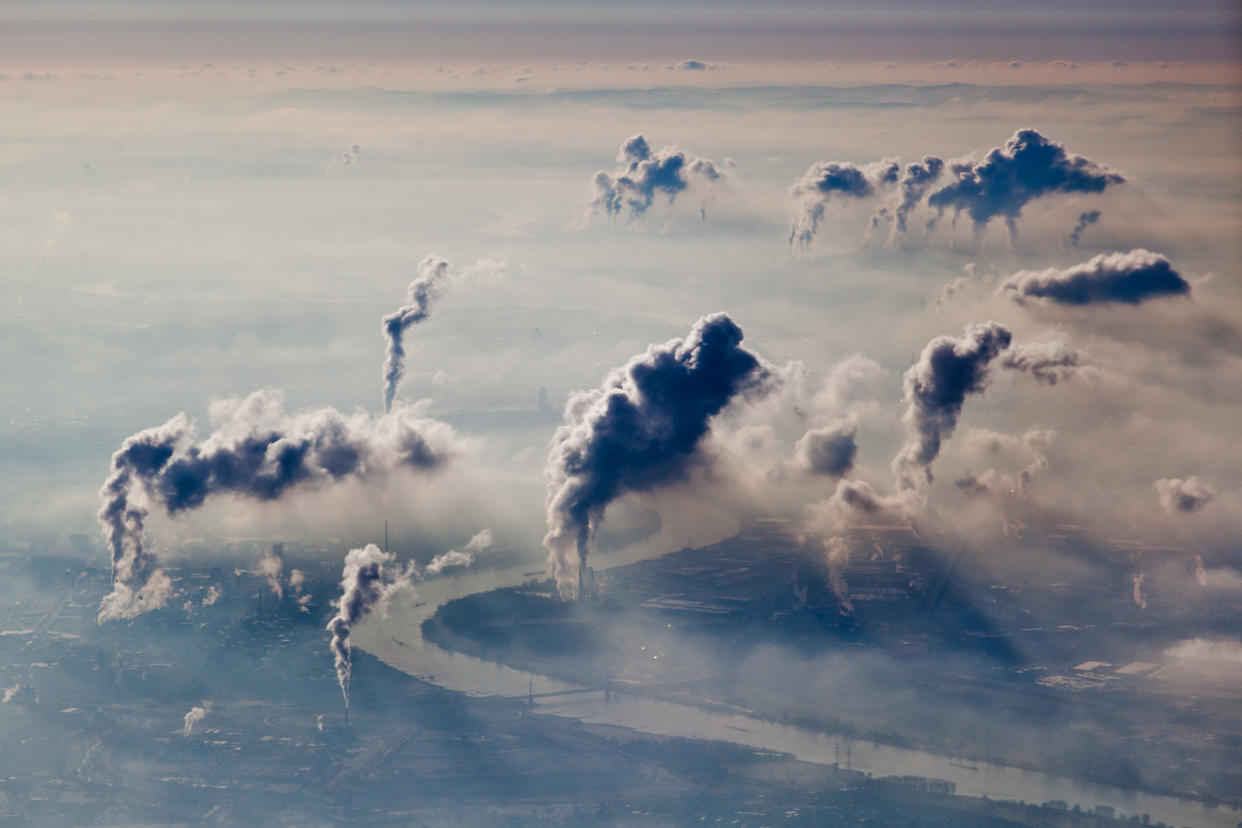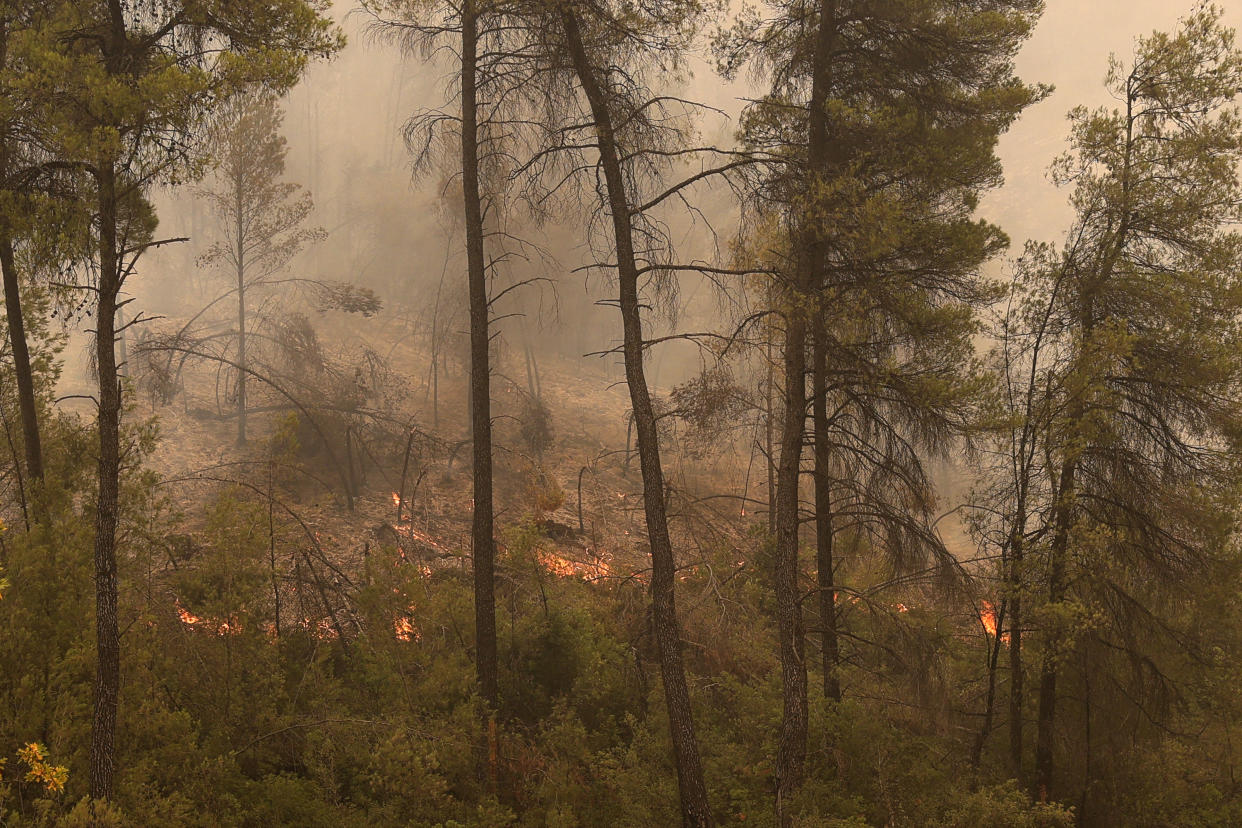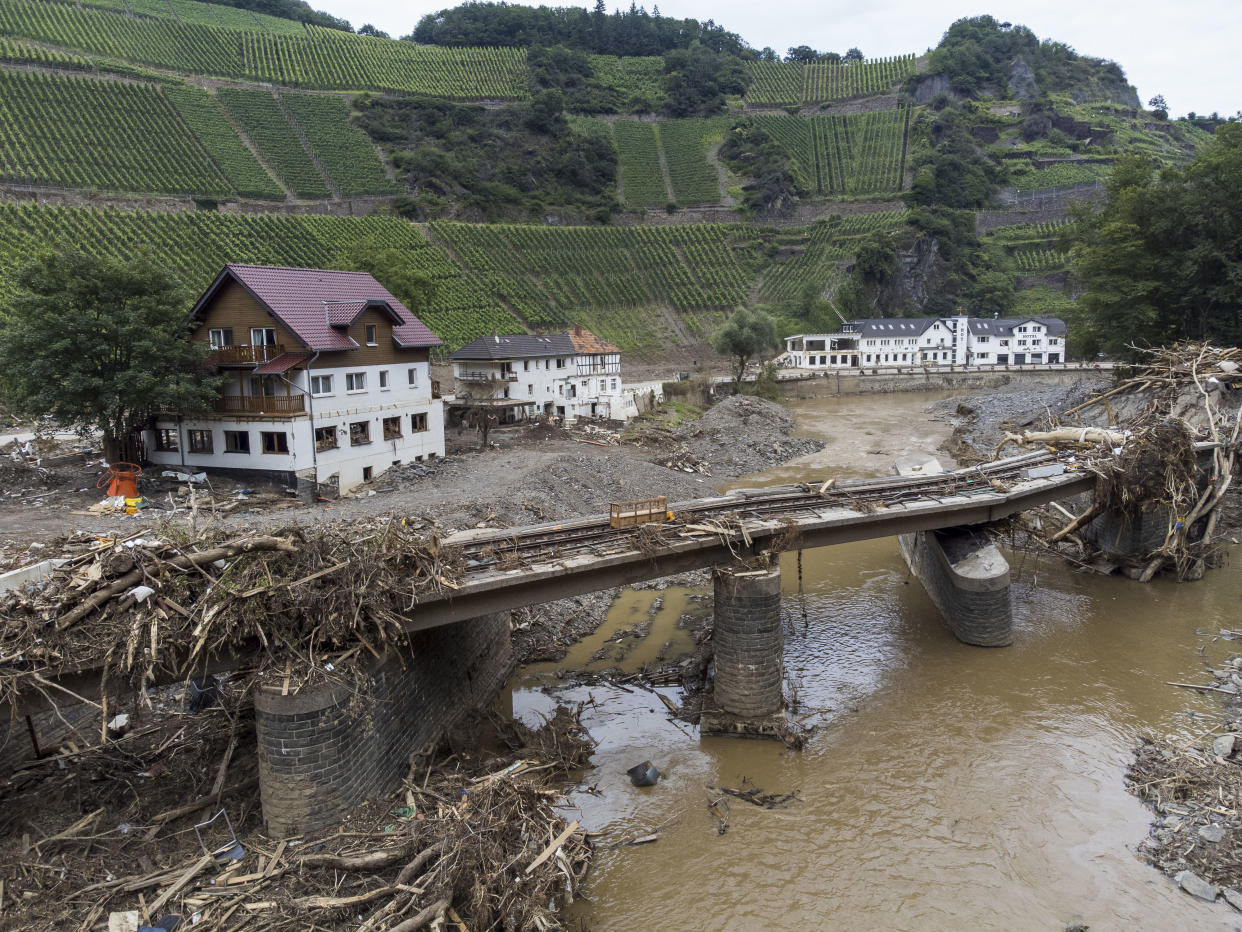Extreme 'once in 50 years' weather events could soon happen every four years
Extreme weather events like heatwaves and droughts that previously would have happened every 50 years could soon happen every four, a UN climate change report has warned.
The report, by the UN's Intergovernmental Panel on Climate Change (IPCC), is the first to quantify the likelihood of extreme events across a wide variety of scenarios.
Dr Robert Rohde, lead scientist of Berkeley Earth, said: “What were once-in-50-year heat extremes are now occurring every 10 years.

“By a rise of 2C, those same extremes will occur every 3.5 years.”
The report found that (for example) once-in-a-decade heavy rain events are already 1.3 times more likely and 6.7% wetter compared with the 50 years leading up to 1900, when human-driven warning began to occur.
Droughts that previously happened once a decade now happen every five or six years.
Read more: IPCC report – UK calls for all countries to produce tougher climate plans
Xuebin Zhang, a climatologist with Environment Canada in Toronto, warned that as the world warms, such extreme weather events will not only become more frequent, but also more severe.
Zhang said the world should also expect more compound events, such as heat waves and long-term droughts occurring simultaneously.
He said: “We are not going to be hit just by one thing, we are going to be hit by multiple things at the same time.”
What the report means for Europe

The report says Europe is already seeing the effects of climate change, with extreme droughts affecting the Mediterranean region.
But in coming years, events such as this summer’s flooding in Germany and the wildfires in Greece are predicted to continue or worsen.
The report predicts with high confidence that droughts and "fire weather" in the Mediterranean region will continue.
Meanwhile, in northern Europe, river flooding will worsen.
Both of these have been caused by human contribution to climate change, the researchers believe.
Snow and ice in the Alps will decrease below elevations of 1,500m throughout the 21st century, and glacier ice will retreat in the Alps and Scandinavia.
"Periglacial" processes in northern Europe (where areas near a glacier or ice sheet thaw and refreeze) will stop altogether by 2100.
Scientists now link specific weather events to climate change

This summer, climate researchers said the "heat dome" affecting America was "virtually impossible" without human-induced climate change.
Researchers working on the report say weather events this year show the effects of climate change are already here.
Paulo Artaxo, a lead author of the report and an environmental physicist at the University of Sao Paulo, said: "The heatwave in Canada, fires in California, floods in Germany, floods in China [and] droughts in central Brazil make it very, very clear that climate extremes are having a very heavy toll."
The report found that nearly all of the current rise in temperature can be attributed to human influence.
The IPCC found that the effect of human activity has raised temperatures by around 1.1C above the average in the 19th century – and the contribution of the sun and volcanoes is almost zero.
The report warns that there is only a 50% chance of staying below the 1.5C threshold called for by the 2015 Paris agreement.
Helen Mountford, vice president of climate and economics at the World Resources Institute, said: “Our opportunity to avoid even more catastrophic impacts has an expiration date.
"The report implies that this decade is truly our last chance to take the actions necessary to limit temperature rise to 1.5C.
"If we collectively fail to rapidly curb greenhouse gas emissions in the 2020s, that goal will slip out of reach.”
No Arctic ice
The Arctic is expected to be ice-free in summer at least once before 2050 under all emissions scenarios, further endangering polar bears and speeding up warming as less of the sun’s energy is reflected back to space.
The researchers also warned that other "tipping point" events are a possibility, writing: “Abrupt responses and tipping points of the climate system, such as strongly increased Antarctic ice sheet melt and forest dieback, cannot be ruled out.”


